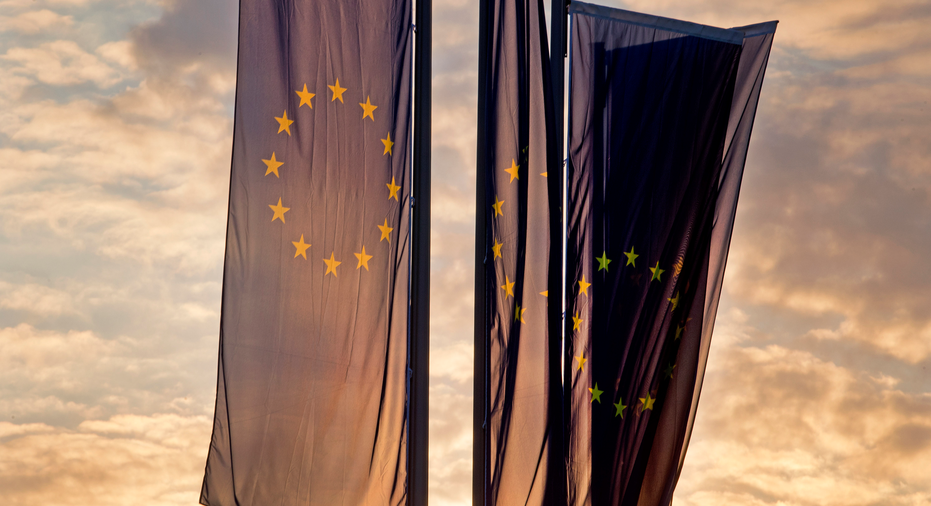The Latest: European Central Bank ready to help economy more

VILNIUS, Lithuania – The Latest on the European Central Bank's monetary policy meeting (all times local):
4:25 p.m.
European Central Bank President Mario Draghi said the bank is ready to "use all the instruments that are in the toolbox" to support the economy if needed.
Draghi even said that members of the bank's governing council had discussed the possibility of re-starting its bond purchase stimulus program, which concluded at the end of the year after 2.6 trillion euros ($2.9 trillion) in purchases. At the time it ended, the program faced a potential lack of remaining assets to purchase that analysts said would ultimately limit its duration.
Draghi said, however, that there was now "headroom" to restart the program if it became necessary and that "the policy space is there" for any measures the bank might need to deploy.
___
4:10 p.m.
European Central Bank President Mario Draghi says the bank extended its promise of record low interest rates because of headwinds facing the economy such as rising trade protectionism.
Draghi said uncertainty about trade "has extended beyond what we believed in March," when the bank extended its promise to hold rates until the end of the year. On Thursday that vow was prolonged through mid-2020.
He said market indicators of low long-term inflation could indicate that market participants are seeing "a much broader phenomenon" that could including "questioning the multilateral order in which we have lived since the Second World War."
He said that despite risks from trade conflicts and other external threats "the data on the economy is not bad."
___
3:55 p.m.
The European Central Bank has trimmed its growth forecast for next year to 1.4% from 1.6%.
The central bank cut the outlook for 2021 by a smaller amount, to 1.4% from 1.5%.
It also trimmed its inflation forecast for next year to 1.4% from 1.5% previously, shy of its goal of having it close to but below 2%.
ECB President Mario Draghi announced the adjustments to its expectations at a news conference on Thursday after the bank took steps to strengthen the economy and boost inflation in the face of global concerns, including trade disputes.
___
3:45 p.m.
European Central Bank President Mario Draghi says that "global headwinds continue to weigh" on the outlook for the 19 countries that use the euro.
Among those headwinds is the rising threat of trade tariffs, which he said "is leaving its mark on economic sentiment."
Draghi said that the central bank stands ready to use all available tools to support the economy if needed.
He spoke after the bank took steps to strengthen the economy and boost inflation. It extended the earliest date for an interest rate increase to mid-2020 from the end of this year and disclosed low interest rate terms for previously announced long-term loans to banks. Banks could in some cases enjoy negative interest on those loans if they meet benchmarks for lending the money back out to companies.
___
2:50 p.m.
The European Central Bank has taken action to support the economy in the 19 countries that use the euro, responding to fears about global trade conflicts.
The ECB said Thursday it would extend the earliest date for an interest rate increase from year-end to mid-2020. Benchmark rates are currently at record lows.
The central bank, which is the monetary authority for the eurozone, also said it would offer low rates on previously announced two-year loans to banks to help keep loans flowing to businesses.
The ECB's move comes two days after the head of the U.S. Federal Reserve shifted the bank's stance toward stimulus by saying it could cut interest rates if trade disputes threaten growth.
___
8:00 a.m.
The European Central Bank is wrestling with what to do about growth worries and sluggish inflation, just two days after the U.S. Federal Reserve opened the door to more stimulus.
Markets and analysts are waiting to see what the ECB's governing council decides at a meeting in Vilnius, Lithuania. The bank could, among other things, say it is offering very favorable interest rates in an already-announced round of cheap, long-term loans to banks.
It could also put off the earliest date for an increase in interest rates. Currently, the bank has promised to hold rates unchanged at least until year-end. Speculation that the ECB may provide more stimulus has grown as market expectations for inflation over the longer term have sagged, a sign of pessimism about the economy.



















